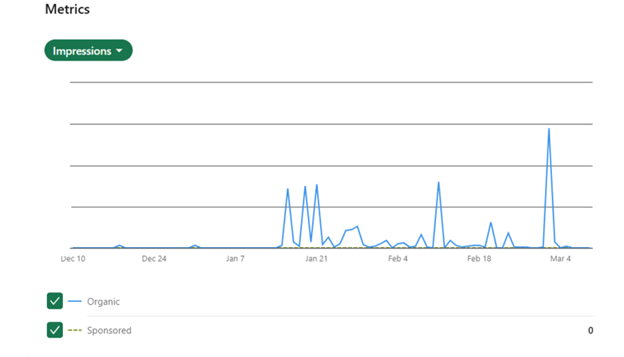Keeping Company Blogs Relevant in 2025: Best Practices That Work
March 19, 2025
By the early 2000s, blogs had already become a major trend. People used them as online personal journals, sharing their thoughts, experiences, and expertise through forums and self-created websites. Businesses quickly realized they had high potential as a marketing and revenue-generating tool. They also embraced the trend, using company blog content to attract customers, differentiate themselves, and even boost sales.

If you’ve built a website, you’ve probably heard that having a blog can help you achieve a higher ranking on Google search. And while there’s no denying this,
when businesses blog just for search engine optimization (SEO), it can often lead to the mistake of choosing quantity over quality, especially when they forget that Google’s original aim was to tailor its algorithm to people’s preferences, not the other way around.
While the internet is flooded with SEO-driven content and businesses have countless other channels to communicate their message, are company blogs still relevant? Why should companies invest time and resources into blogging?
-
Numbers speaking-
Our data reveals that from January to March 2025, increasing the number of blog posts on our website alongside LinkedIn posts (using the same content)—allowed us to reach a wider audience. This shift contrasted sharply with the previous month when we published no articles.

We focused on writing about relevant, current topics and followed general guidelines for Google’s algorithm. Grasping all 200+ factors is incredibly challenging, and let’s be honest, nearly impossible.
-
However, what we do know is that Google values—
( source: morning score)
To achieve these goals, it’s easier sometimes to forget SEO rules and simply write. So, without further ado:
Here’s how to write a Blog that is not 100% focused on SEO
Like any other online content, successful blogs feel authentic, as if they were written by people who put the time and effort into educating others. But most importantly, they are enjoyable to read.If the writer is bored while writing a blog post, the reader will feel it within the first sentence.
1) Keep the Topic Relevant (and Interesting) to You
Your best ideas will come from your day-to-day work, personal experience, and industry insights And if you’re feeling stuck and out of ideas (like we all do sometimes), write about writing a blog post (creative, huh?) Case studies help achieve just that; taking a trendy topic and analyzing it from your professional point of view can work (we tried it with the “It Ends with Us” blog post, so let us know what you think).
-
Usually, most company blog posts fit into these categories:
2) Don’t Let SEO Kill Your Creativity
Blogs weren’t always about SEO. In the early days of blogging, people wrote because they had something to say. With no specific rules, people could create and come up with new and authentic ideas. Writing SEO alone is not fun and can be boring, so it should always come second.
3) Learn from Professionals
Choosing 2 to 3 professional thought leaders in your field to follow is usually enough to keep track of industry news and tips.
One marketing expert we recommend following, for example, is Andy Crestodina. He is the co-founder of Orbit Media and offers practical tips to enhance your marketing strategy.
Here are some tips we learned from professionals that helped us improve our blog posts:
4) Use AI as an assistant, not a Replacement
-
AI is a great assistant but shouldn’t replace your creativity:
5) Make It Easy to Read (Because People Are Lazy! And yes, for the SEO)
Your job is to ensure people get real value from your text, which starts with making it easy to read. And yes, many of these principles align with SEO best practices.So, do people still read company blogs?
A great blog shapes your company’s image, builds trust, and establishes credibility—whether or not it gains massive exposure. Even a single reader, such as a potential employee or someone searching your company, may form their opinion based on it. It’s not always clear who is behind the data analytics, so what impression do you want them to have of your brand?

If consistently blogging doesn’t fit into your schedule, that’s okay—don’t force it. Write when you have a topic or an idea that excites you and is worth sharing.Prioritizing quality over quantity takes the pressure off and allows you to focus on what really matters: SEO rules! (Just checking you’re still with me) If you’ve made it this far, you already know this article is about people first, not just SEO.